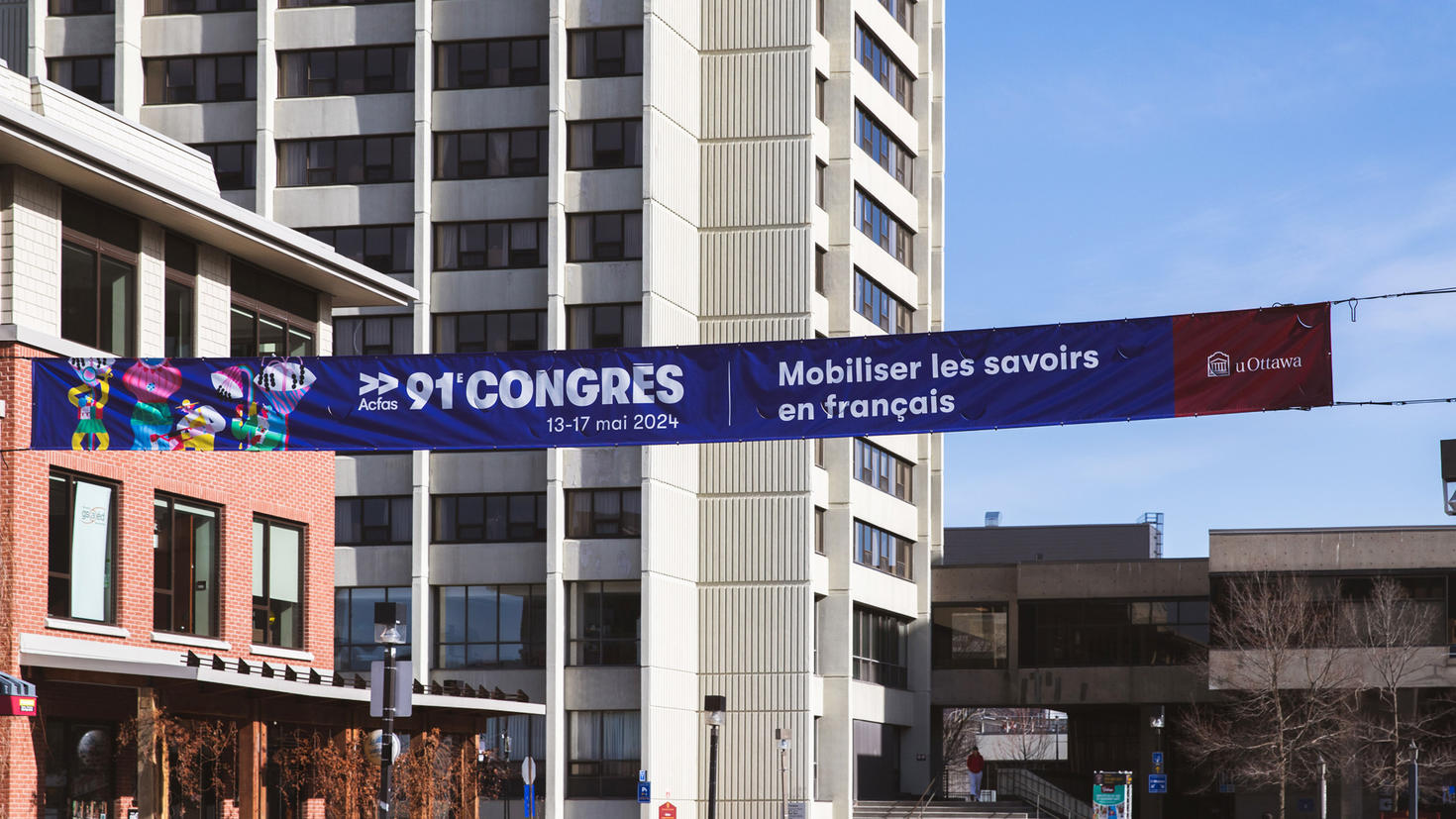Recent reports by ACFAS, the Advisory Panel on the Federal Research Support System and the House of Commons’ Standing Committee on Science and Research paint a similar picture of the challenges and find consensus on suggested action to ensure the recognition, discoverability and sustainability of research in French.
According to Lagacé, hosting the conference at uOttawa — a major bilingual institution with a mission to serve francophones, including in minority settings — provides the perfect framework for discussing proposed actions, taking into account the realities of research in Canada and around the world. With this 91st conference, now is the time for mobilization and action.
Current challenges for French-language research in Canada
The move away from French-language research is tangible, documented and worrisome should the status quo persist. The numbers say it all: globally, the proportion of scholarly articles published in English went from 64% in 1995 to over 90% in 2019. Over the same period, the proportion of articles published in French went from just under 10% to 1% (Standing Committee on Science and Research report: Revitalizing Research and Scientific Publication in French in Canada, p. 10, June 2023). Many obstacles in the research support ecosystem hinder the development and visibility of research in French. Among them, Lagacé mentions the notion of excellence defined by criteria such as “publications’ impact factor” (the number of times an article is cited). This factor favours publication in English due to higher profile and wider distribution. Francophone researchers practically feel compelled to publish in English for their career advancement and assessment of their grant applications.
This trend has consequences for the quality of life of all francophones, limiting their access to knowledge and reducing knowledge mobilization in their communities, not to mention the absence of French-language contributions to the global scholarly dialogue.
Lagacé highlights the need to establish a fair approach that values the intrinsic value of work, independent of the language of publication. She remains optimistic regarding the clear, detailed proposed actions to address the situation. She also stresses the importance of revisiting the notion of research excellence to integrate more inclusive criteria that, in particular, consider resource availability, uneven funding and barriers to access to education and research.
Possible lasting solutions for French-language research
Lagacé is hopeful that the proposed measures in the three reports will be implemented. One of the key elements for her would be the adoption of a Canada-wide strategy for French-language research and publication. Indeed, she made a formal recommendation on this in an appearance before a House of Commons standing committee last November. Establishing initiatives offering lasting support, strengthening support to institutions and creating an office for French-language scholarship are also necessary.
Lagacé also brings up the importance of translation tools to allow anglophone researchers to translate their work into French. Indeed, bilingual research is extremely rewarding: it offers twice the wealth of perspectives and promotes greater access to knowledge.
uOttawa central to a national effort
Lagacé urges political decision-makers, funding bodies and universities to be fully engaged in supporting research in French in Canada. “The ACFAS plays a key role in this process. By encouraging more inclusive, diverse assessment of research excellence, we can imagine a future when linguistic and cultural diversity are fully valued and celebrated on the Canadian research scene.”

“By encouraging more inclusive, diverse assessment of research excellence, we can imagine a future when linguistic and cultural diversity are fully valued and celebrated on the Canadian research scene.”
Martine Lagacé
— uOttawa associate vice-president, research promotion and development, and conference co-chair
The University of Ottawa is well placed to understand the challenged related to research in Canada’s two official languages. As well, research in French clearly matters to uOttawa, as shown by, for example, our Collège des chaires de recherche sur le monde francophone, Centre de recherche sur les francophonies canadiennes, involvement in the Réseau international des Chaires Senghor de la Francophonie and many partnerships within the Francophonie worldwide.
At the crossroads of francophone minority and majority communities in Canada, the University of Ottawa is now a major catalyst in bringing together key actors around a national strategy to support French-language research.
The 91st ACFAS conference, with the theme of knowledge mobilization, will take place May 13 to 17 at the University of Ottawa.
References
Report of the Advisory Panel on the Federal Research Support System


